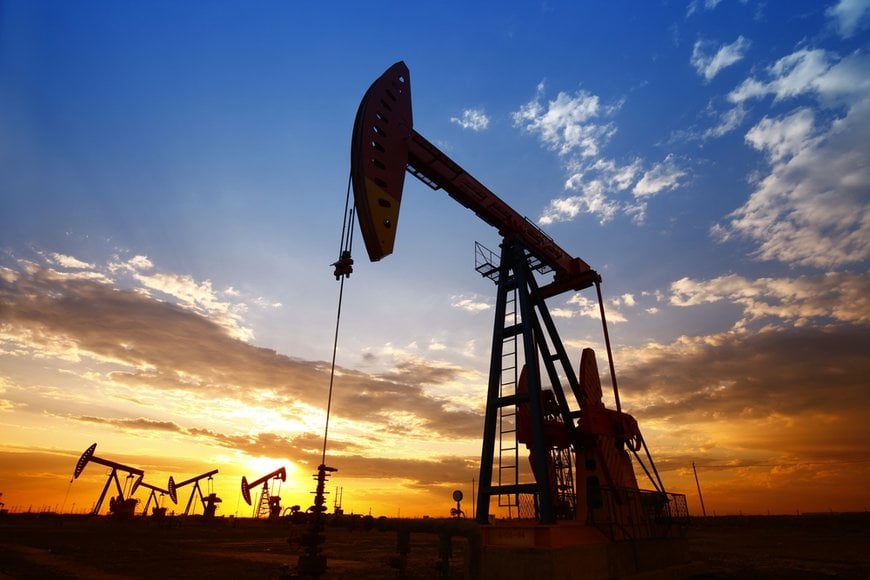www.industryemea.com
20
'23
Written on Modified on
Drive systems for harsh environments
Here, James Chester, director at Technidrive, explains how the right systems integrator can help to navigate these complexities.

During the construction of the Eiffel Tower, engineer Gustave Eiffel noticed the tower could be used as a giant thermometer. Due to the structure expanding and contracting with temperature changes, its height can vary by up to 15cm. This engineering quirk demonstrates the impact of temperature extremes on industrial structures. However, in today’s complex industry settings, temperature is just one of many engineering considerations.
Environmental conditions can wreak havoc on the longevity of motors and gear units. From extreme temperatures and corrosive substances, dust, moisture and vibration, the environment can put a significant strain on equipment. As a result, engineering appropriate drive trains can be extremely challenging. Plus, many end users are not aware of these unique requirements when commissioning a system.
Among the most common challenges is fluctuating temperatures. Whether extremely hot or cold, this variation can lead to thermal stress, affecting the lubrication and performance of motors and gear units. Continuous operation at either end of the temperature spectrum can also cause damage — whether that’s the extreme heat of operating in an oil refinery, or operation of a motor in a consistently sub-zero environment, like that of a cold storage facility.
Moisture and humidity also have an impact. Ideally, an integrator would have prior experience of drive systems that operate in a similar environment, or the technical knowledge to advise on the correct materials selection. Does the system need to be resistant to corrosion and rust? If so, the integrator may specify using corrosion-resistant coatings or specialised alloys in the construction of motor casings, drive enclosures and gearbox housings.
Ensuring that cable entry points, shaft openings and other potential entry points are properly sealed is also crucial. This is an area that is often missed when end users integrate systems themselves. Calling on a professional with knowledge can ensure cable entry points, shaft openings and other potential entry points are not exposed to moisture — minimising maintenance and repair headaches in the long run.
In fact, systems integrators like Technidrive can guide equipment selection based on ingress protection (IP) ratings, ensuring that the chosen components meet or exceed the required level of protection against containments. For example, an IP65-rated motor can withstand water jets and dust ingress, making it suitable for harsh conditions in industries like pharmaceutical and food production.
Testing and performance
Systems for harsh environments should also be tested against the conditions they will face in the field. As well as the aforementioned environmental conditions, a system will be exposed to vibration, shock loads and wear and tear throughout its operational lifespan. With each project Technidrive completes, we use our experience to ensure the system is built to last.
Even with the best preventative measures, drive systems will require maintenance throughout their lifespan. A systems integrator can support this in several ways. As standard, Technidrive’s engineers provide a comprehensive suggested maintenance schedule. For users that want more reassurance, there are also options to incorporate remote monitoring technology within the system.
Using a combination of sensors and data capture technology, these tools provide operators with real-time data on environmental conditions and equipment performance. In an extremely hot environment, like an industrial bakery, this could measure the temperature. The system will then generate alerts and notifications when predefined thresholds are crossed. Let's say a motor surpasses the safe temperature limit, the bakery’s maintenance team will be informed immediately, allowing engineers to make adjustments or repairs to avoid downtime or stoppages.
This technology minimises the likelihood of expensive unplanned downtime and can also yield major safety benefits. This is particularly important since many harsh environments are also hazardous — think bakeries, oil and gas facilities, pharma and mining. Choosing a systems integrator that understands the challenges and regulations of harsh and hazardous environments is crucial.
The height variation of Gustave Eiffel’s tower seems pretty minor in comparison to the engineering challenges faced in industry. Integrating a drive train package is incredibly complex and leaning on the expertise of an experienced systems integrator is even more important in extreme environments.
www.technidrive.com

